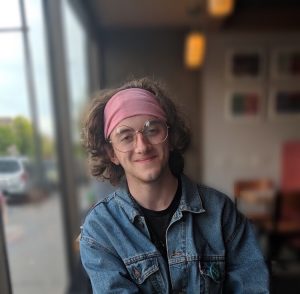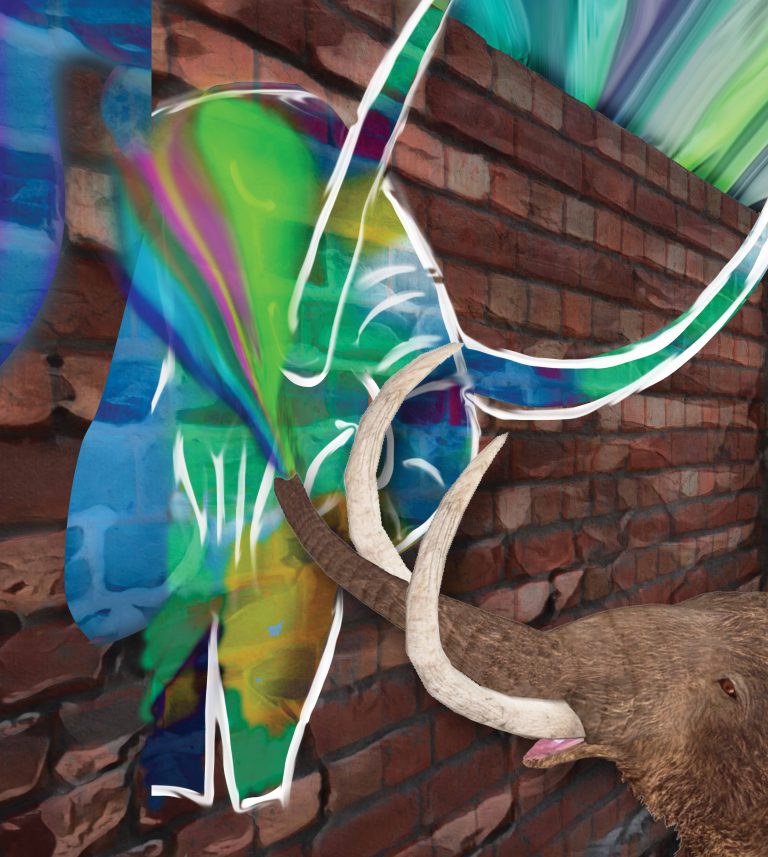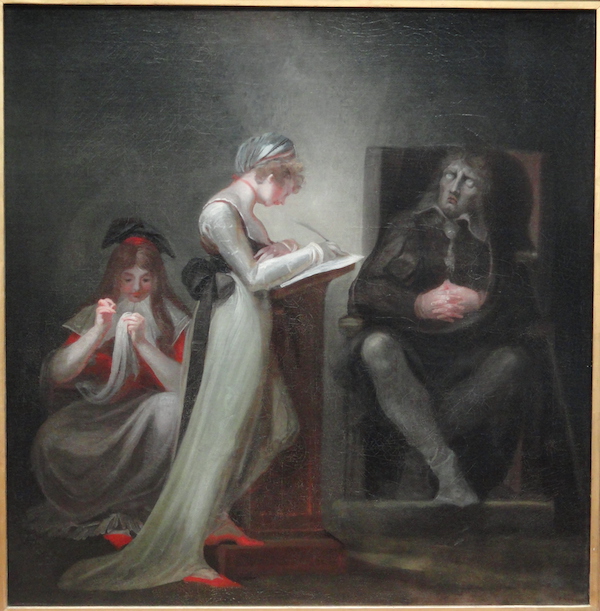Q&A with James La Bella, Fine China Nightmare Playwright

Emerson Stage’s Newfest Readings and Shorts begin next Tuesday, March 19, with a reading of James La Bella’s Fine China Nightmare. I reached out to La Bella, BFA ‘20, about the process of writing Fine China Nightmare and working with Emerson Stage.
Tell us a little about the process of having your play produced as a Newfest Reading.
The process thus far has been fairly easy. Since last semester, I’ve been in dialogue with Joe Antoun about the script—sending him updates, etc. Recently, the reading was given a date (March 19th) and a director (Grace Burns), so now I’m in talks with her to set some goals, and talk about how to best structure our time. The reading slots only get one rehearsal, so much of the work is in the prep for that rehearsal.
What excites you the most about working on Fine China Nightmare?
I’m very excited to be involved in this process, because I think a play is at its most stirring in its early-stages. That is, after all, when a play is gloriously at its messiest. There’s something thrilling about being able to both live in and comb through the morass of an early draft. It’s a huge period of learning, and I feel lucky to do it here.
In the script, you explain that Fine China Nightmare is a series of ‘exercises’ you wrote during your time at the Powerhouse Theatre. How was it working at Powerhouse?
Working at Powerhouse Theatre was a dream; I can’t recommend it enough to early-career directors and playwrights. My time there involved taking classes in the morning, shadowing professional writers in the afternoon, and writing/working shows at night.
As a playwriting apprentice I’d have to write a ten- to fifteen-minute play twice a week, with an eye towards a specific technical or stylistic goal. Fine China Nightmare evolved from a series of these ten-minute plays which surrounded the same theme.
One of Fine China Nightmare’s scenes, “vaudeville rockefeller,” is almost entirely stage direction. How is the scene being presented in the context of a reading?
That’s a good question! I’m currently speaking with the director, Grace Burns, about this scene. I foresee picking one of two options: Either we omit the scene from the play, or the stage directions are read, with the suggestion of physicality from the actors. I’m wondering right now if the scene, a bloody vaudeville routine, will bring down the momentum of the show if read aloud.
Tell us about where the title of the play comes from.
The play is a kind of maniacal look at ennui of the upper-class, framed by a quote from Maria Irene Fornés about a smooth surface and the earth-worms underneath it. Throughout the play, china cups are referenced as indicators of either civility or wealth in the upper-class – and thus become a kind of symbol for this ‘smooth surface.’
So the title refers to the horror of exposing the ‘earth worms’ underneath a civil façade. But don’t be fooled—it is a comedy!
What do you think Emerson students and audiences will take away from seeing Fine China Nightmare?
It’s hard to say. I don’t really believe that a play should try to say one thing. If I wanted to say one thing, I’d just write it down on a piece of paper and hand it out. So I guess my hope is that people will walk away with questions—not the sort of questions that make a person angry, like “Oh, who did kill the Duchess anyway?”, but the kind of questions that live in a body with simultaneous ease and discomfort, the kinds of questions whose answers are grey and expanding.
All NewFest Readings and Shorts are free to attend:
New Play Reading | March 19
Semel Theater, FREE
Fine China Nightmare by James La Bella; Directed by Grace Burns
New Play Reading | March 21
Semel Theater, FREE
The Bar by Hannah Riffe; Directed by Ashley Reid
New Shorts Performances | March 23
Some Christmas by Brandon Beach; Directed by Gabriella Cuebas
Don’t miss the NewFest New Play Workshop: Mad Moon, a new musical by Lisa D’Amour, with music composed by Sam Craft, and directed by Alex Ates ‘13. Learn more and purchase your tickets.



